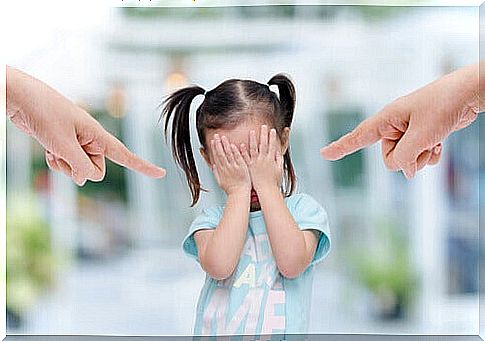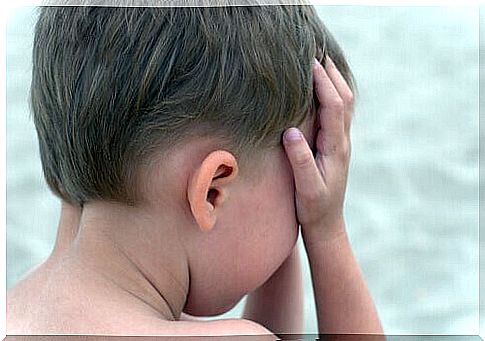Shouting Damages The Child’s Brain

“Through ignorance we sink into slavery, through education we rise up to freedom” said Diego Luis de Cordoba even. However, education has little to do with the introduction of knowledge by force, and even less to do with screaming. In fact, yelling can cause significant damage to a child’s brain.
Screaming is not an effective way to get others to listen to you, this is indicated by several studies. Furthermore, we often shout at others as a way to release our own frustration , not to convey information. This is especially true for children, as they do not learn through screaming.
Empty shout
Authors, such as Aaron James, argue that shouting does not make you more right, nor does it give you an advantage in a discussion. This has been confirmed in several studies, another one referring to the current president of the United States, Donald Trump. If we want to give the impression that we are right, screaming will not help us. Argumentation, not shouting, will win a discussion.

You usually scream when you lose control. Therefore, this is the message people get when you scream – that you have lost control and given in to your emotions. Screaming actually distracts from the words you are trying to say.
Effects of screaming at children
Now, according to a new study published by the University of Pittsburgh, regular screaming or yelling at a child carries a large number of risks for their mental development.
This means that anyone who uses screaming to control or punish their child increases the risk of developmental problems in their children. Children who are often shouted at can learn to react with aggressive or defensive behavior.
The study involved nearly 1,000 families with children between the ages of one and two. The study found that children who were called in frequently were more likely to show depressive symptoms and behavioral problems during adolescence.
In fact, they found that shouting does not minimize problems, it aggravates them. For example, it can make children more disobedient. At the same time, parents who adopt a warmer attitude towards their children minimize the negative effects of the few times they shout.
Further studies
There are many more studies in this area. Harvard’s Department of Psychiatry confirms that verbal violence, screaming, humiliation, or a combination of the three can all permanently change a child’s brain structure.
After analyzing more than 50 children with mental health problems due to family problems and comparing them with almost 100 healthy children, they made alarming findings. For example, children with mental health problems showed severe reduction of the corpus callosum, that is, the part that connects both halves of the brain.
This reduction can make both parts of the brain less integrated; cause changes in personality and mood to be more marked and compromise emotional stability. Another consequence of this reduced connectivity is the inability to focus.

How can we avoid shouting?
Of course, our children can sometimes drive us crazy, but shouting is never the answer. To avoid falling for this temptation, remember the following:
- Shouting is losing control. If we lose control, we can no longer discipline our child properly.
- Avoid stressful moments. Sometimes it is difficult, but with good observation we will learn what triggers us to start shouting. So when we see the pattern, we can work to eliminate it.
- Calm down before you shop. Develop a trick that will calm you down when you reach your limit, such as counting to ten. Relax and gain control.
- Do not blame yourself or exaggerate it. In other words, be careful about the expectations you have set for yourself and your child. Also, do not blame him or her because they do not always meet your expectations. They are a child. The most important thing is that they are happy and develop properly.
Now, we already know the damage that frequent screaming can cause on a child’s brain. It is thus in our hands, as adults and responsible people, to look for alternative forms of expression. We can find other ways to get our message across without harming our children’s mental health.








